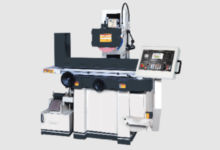Using Professional Appraisers for Business Valuation

Understanding The Need For Professional Business Valuation
So, you’ve built a business from the ground up. It’s your baby, and you know it inside and out. But when it comes time to figure out what it’s actually worth, things can get tricky. Relying on gut feelings or what a friend thinks it’s worth is a risky game. A professional appraisal brings a level of certainty that guesswork just can’t match. It’s about getting a clear, objective picture, not just a number you hope is right.
When Is A Business Valuation Necessary?
There are quite a few situations where getting a solid valuation is a smart move. Think about:
- Selling your business: You need to know a fair asking price.
- Bringing in a partner or investor: They’ll want to see a clear valuation.
- Estate planning or gifting: For tax purposes and fair distribution.
- Divorce proceedings: To divide assets equitably.
- Disputes among owners: To settle disagreements about value.
- Securing financing: Lenders often require it.
The Risks Of Self-Valuation
Trying to put a price on your own business can be like trying to cut your own hair – you might miss spots, and the result is often less than ideal. You’re too close to it. You might overvalue your sweat equity or undervalue certain assets. Plus, without a standardized approach, your number won’t hold up to scrutiny from buyers, investors, or the IRS. It’s easy to get emotional and let personal attachment cloud your judgment, leading to unrealistic expectations.
Relying on informal estimates or outdated information can lead to significant financial missteps. A professional appraisal provides a defensible and well-supported value.
Benefits Of An Objective Appraisal
Getting an objective appraisal from a qualified professional offers several advantages:
- Credibility: A professional report is taken seriously by all parties involved.
- Accuracy: Appraisers use established methods to arrive at a realistic value.
- Negotiation Power: A solid valuation gives you a strong basis for discussions.
- Risk Mitigation: It helps avoid costly mistakes and disputes down the line.
- Clarity: You get a detailed understanding of what drives your business’s value.
Selecting The Right Business Appraiser
So, you’ve decided to get your business appraised, which is a smart move. But now comes the tricky part: picking the person who’s actually going to do the valuing. It’s not like picking a plumber; you can’t just grab the first name you see. You need someone who really knows their stuff, especially when it comes to your specific business.
Credentials And Certifications To Look For
First off, don’t just go with anyone. Look for appraisers who have professional designations. These aren’t just fancy letters after their name; they mean the person has met certain standards and passed tests. Some common ones include the CPA (Certified Public Accountant) with an ABV (Accredited in Business Valuation) or ASA (Accredited Senior Appraiser) from the American Society of Appraisers. These show they’ve put in the work to learn how to value businesses properly. It’s a good sign they’re serious about what they do.
Experience With Your Industry
This is a big one. Valuing a tech startup is way different from valuing a manufacturing plant or a restaurant. An appraiser who’s spent years working with businesses like yours will have a much better feel for the market, the risks, and what makes your type of business tick. They’ll know the industry jargon, the common challenges, and the factors that really drive value. Ask them directly about their experience in your specific sector. If they can point to past projects or clients in your field, that’s a good sign.
Understanding Their Valuation Methodologies
Businesses aren’t valued using just one method. There are different ways to look at it, and a good appraiser will know which ones are best suited for your situation. They should be able to explain their approach clearly. You want someone who can break down complex ideas into plain English, so you actually understand how they arrived at their conclusion. Don’t be afraid to ask questions about how they’ll assess things like your company’s assets, its earnings, and even its reputation. They should be able to explain why they chose certain methods over others.
The Business Valuation Process Explained
So, you need to get your business appraised. What actually happens during that process? It’s not just someone looking at your company and pulling a number out of thin air. There’s a structured approach involved, and understanding it can help you prepare and get the most out of the appraisal.
Information Gathering And Due Diligence
This is where the appraiser really digs in. They need to get a clear picture of your business, and that means asking for a lot of information. Think financial records, legal documents, operational details, and even things like customer lists and employee structures. It’s a thorough review, and the more organized you are with your documents, the smoother this part will go. They’re essentially trying to understand every facet of your company’s operations and history.
Analyzing Financial Statements
This is a big one. The appraiser will spend a good chunk of time poring over your financial statements – balance sheets, income statements, cash flow statements. They’re not just looking at the numbers; they’re analyzing trends, profitability, debt levels, and how your financials compare to industry benchmarks. They want to see the financial health and performance of your business over time. This analysis helps them understand the earning capacity of your company.
Assessing Intangible Assets
Businesses are more than just their physical stuff. Things like your brand name, patents, customer relationships, and proprietary software are often what give a business its real value. The appraiser will look at these intangible assets and try to put a monetary value on them. This can be tricky because they aren’t as straightforward as a piece of equipment. They’ll consider how these assets contribute to your company’s earning power and competitive advantage.
It’s important to remember that the appraiser is building a case for their valuation. The more solid information and clear explanations they have, the more credible their final report will be. Be prepared to answer questions and provide context for the data you supply.
Common Valuation Methodologies
When you’re trying to figure out what your business is actually worth, there isn’t just one way to do it. Different situations call for different methods, and appraisers use a few main categories to get to a number. It’s not like picking a shirt off the rack; it’s more about finding the right tool for the job.
Market-Based Approaches
This approach looks at what similar businesses have sold for recently. Think of it like comparing houses in your neighborhood. If a three-bedroom ranch down the street sold for $300,000, and yours is pretty similar, that gives you a ballpark idea. For businesses, appraisers look at sales data for companies in the same industry, of a similar size, and in the same geographic area. They adjust for differences, of course. It’s a good way to get a feel for what the market is willing to pay.
Income-Based Approaches
This is all about the money your business makes, or is expected to make. If your business is a cash cow, that’s going to be a big part of its value. Appraisers look at things like historical earnings, projected future profits, and how reliable that income stream is. They might use methods like capitalizing earnings or discounting future cash flows. The idea is that a business is worth what it can consistently earn for its owner.
Asset-Based Approaches
This method focuses on the value of the company’s assets minus its liabilities. It’s like looking at the balance sheet and figuring out what everything is worth if you sold it off. This approach is often used for businesses that don’t have a lot of intangible value, like a holding company or a business that’s being liquidated. It’s pretty straightforward: what are the tangible things worth, and what do you owe?
Here’s a quick look at how they stack up:
| Approach | Focus | Best For |
| Market-Based | What similar businesses sold for | Businesses with many comparable sales |
| Income-Based | Future earnings potential | Profitable businesses with predictable cash flows |
| Asset-Based | Net value of tangible and intangible assets | Businesses with significant physical assets or those facing liquidation |
Choosing the right methodology depends heavily on the type of business, its industry, and the purpose of the valuation. An appraiser will explain why they’ve chosen certain methods for your specific situation.
Interpreting Your Business Valuation Report
So, you’ve got this business valuation report in your hands. What now? It’s not just a fancy piece of paper; it’s a roadmap. First off, let’s talk about the numbers. You’ll see things like “earnings multiples” or “discounted cash flow.” Don’t let the jargon scare you. These are just different ways the appraiser figured out what your business is worth.
Key Metrics And Findings
Your report will highlight the main figures that drive the valuation. This usually includes things like:
- Revenue: How much money your business brings in.
- Profitability: How much of that revenue actually stays as profit (think net income, EBITDA).
- Cash Flow: The actual cash your business generates after expenses.
- Assets: What your business owns, minus what it owes.
These are the building blocks. The appraiser uses these to apply different methods, which we’ll get to.
Understanding The Valuation Range
Most likely, the report won’t give you a single, exact dollar amount. Instead, it will present a range. This is normal. It reflects the different assumptions and methods used. Think of it like this:
| Valuation Method | Valuation Range |
| Market Approach | $1.5M – $1.8M |
| Income Approach | $1.7M – $2.0M |
| Asset Approach | $1.2M – $1.4M |
| Overall Indicated Value | $1.5M – $1.9M |
This range shows you the possibilities. The final number you might use in a sale or for other purposes will often fall within this spectrum, depending on negotiations and specific circumstances.
How To Use The Report Effectively
This report is your tool. Use it to:
- Understand Your Business’s Strengths and Weaknesses: The analysis often points out areas where your business excels and where it might need improvement.
- Set Realistic Expectations: Whether you’re selling, seeking investment, or planning for the future, the report gives you a solid basis for your goals.
- Support Your Decisions: If you’re negotiating a sale or discussing financing, having this objective data backs up your position.
Remember, the valuation is a snapshot in time. It’s based on the information available and the economic conditions at that moment. It’s not a crystal ball, but it’s a very informed estimate.
Working With Business Brokers In Illinois
So, you’ve got a solid valuation report in hand, maybe you’re looking at a business for sale Naperville, or perhaps you’re thinking about selling your own operation. What’s the next logical step? Often, it involves connecting with business brokers Illinois. These professionals are the go-betweens, the matchmakers of the business world. They help bridge the gap between buyers and sellers, making the whole process smoother.
How Appraisers Complement Business Brokers
Think of it this way: an appraiser gives you the objective, data-driven picture of what your business is worth. A business broker then uses that information, along with their market knowledge and network, to actually find a buyer or a suitable business to purchase. The appraisal provides the foundation for pricing and negotiation. Without a good valuation, a broker is essentially flying blind. They need that solid number to market the business effectively or to advise a buyer on a fair offer. It’s a partnership, really. The appraiser provides the ‘what,’ and the broker figures out the ‘who’ and ‘how.’
Finding Qualified Business Brokers in Illinois
When you’re looking for someone to help sell your business or find a new one, you want someone who knows the local scene. Here’s what to look for:
- Experience: Have they sold businesses like yours before? Do they know the Illinois market well?
- Credentials: Are they licensed? Do they have certifications like CBI (Certified Business Intermediary)?
- Network: Do they have a good list of potential buyers or sellers already?
- Communication: Are they easy to talk to? Do they explain things clearly?
It’s not just about finding anyone; it’s about finding the right fit for your specific situation. A good broker will ask a lot of questions about your business and your goals.
Leveraging Valuation for Sale Negotiations
Your business valuation report is your strongest negotiation tool. When you’re working with a business broker in Illinois to sell your business, they’ll use the appraisal to justify the asking price. If a buyer comes in with a lower offer, the broker can point to the objective valuation data to support the original price. Conversely, if you’re buying, your broker will use the appraisal to ensure you’re not overpaying. It takes a lot of the emotion out of the deal, which is usually a good thing. Having that independent valuation report gives both sides confidence in the transaction.
The process of selling or buying a business can be complex. Having professionals like appraisers and brokers involved helps simplify things. They bring specialized knowledge and a network that most individuals don’t have on their own. It’s about making informed decisions based on solid information and market realities.
Wrapping It Up
So, when it comes down to figuring out what your business is really worth, bringing in a pro appraiser makes a lot of sense. It’s not just about getting a number; it’s about getting a solid, well-backed-up number that you can trust. Whether you’re selling, looking for investors, or just want to know where you stand, a good appraisal gives you clarity. It might cost a bit upfront, sure, but the peace of mind and the solid data you get in return? That’s usually worth way more than the fee. Think of it as an investment in knowing your business inside and out.
Frequently Asked Questions
Why should I get a professional to value my business?
Getting a professional appraisal is like asking an expert to figure out what your business is truly worth. You might need one when you’re thinking about selling your company, bringing in new partners, or even for planning purposes like taxes. It helps you know the real value, not just what you guess it might be.
What happens if I try to value my business myself?
Trying to guess your business’s worth on your own can lead to mistakes. You might accidentally overvalue or undervalue it, which can cause problems later, especially if you’re trying to sell or get investors. An expert’s opinion helps avoid these costly errors.
What does a business appraiser actually look at?
A good appraiser will look at all sorts of things. They’ll check your money records, see how much money your business makes, and even consider things like your brand name or special skills your employees have. They use different methods to get a clear picture of your business’s total value.
What are the different ways to value a business?
There are a few main ways appraisers figure out value. Some look at what similar businesses have sold for (market approach). Others focus on how much money the business makes (income approach). And some just count up the value of everything the business owns (asset approach). They often use a mix of these.
What will the appraisal report tell me?
The report will show you the final value, often as a range, because pinpointing an exact number is tricky. It will explain how they reached that number, showing you the important figures and what they mean. You can use this report to help you decide on a selling price or to show potential buyers the real worth of your company.
How do appraisers help when selling a business in Illinois?
In Illinois, business brokers can help you sell your company. An appraisal works hand-in-hand with a broker. The appraisal tells you the fair price, and the broker uses that information to find buyers and negotiate a good deal for you. It makes the selling process smoother and more successful.






